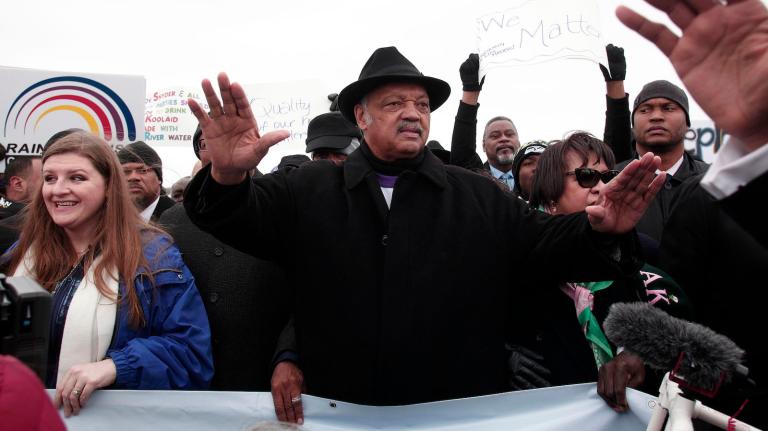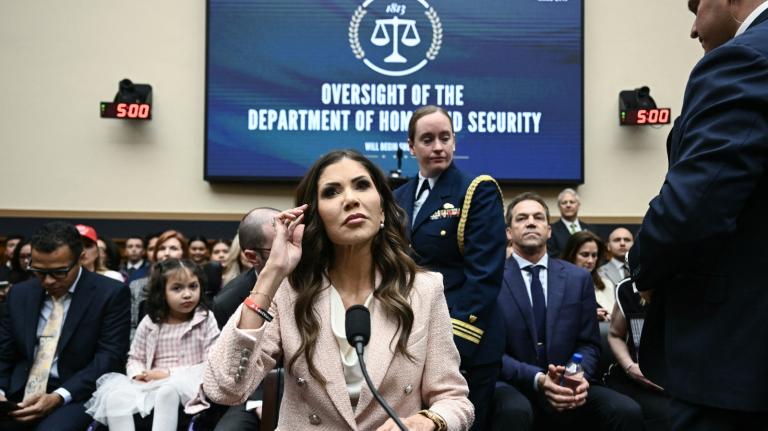Michael Regan talked a big game about “environmental justice” before taking his position as head of the Environmental Protection Agency, or EPA. Now, he’s trying to walk the walk.
On Friday, Regan informed Chicago Mayor Lori Lightfoot that he has serious concerns about a metal scrapyard proposed for a community on the city’s Southeast Side, which is infamous for its toxic pollution. In a letter to Lightfoot, Regan said the scrapyard “has raised significant civil rights concerns.”
“Substantial data indicate the current conditions facing Chicago’s Southeast Side epitomize the problem of environmental injustice, resulting from more than a half century of prior actions,” Regan said. “This neighborhood currently ranks at the highest levels for many pollution indicators.”
He asked that the city complete a health impact assessment of the proposed shredding operation, including a “robust analysis” of air quality data “to meaningfully consider the aggregate potential health effects” on residents compared to their fellow Chicagoans in other parts of the city.
Following the letter, Mayor Lightfoot suspended the city’s permitting process for the scrapyard until a pollution assessment could be completed. “The City shares the U.S. EPA’s commitment to environmental justice and public health, and we look forward to partnering with them to conduct a fair, thorough and timely health impact analysis to inform our future decision-making,” Lightfoot said in a response letter.
The scrapyard made international headlines after the Illinois state EPA approved a key permit for the scrapyard, even though it’s owned by a company subject to a federal consent decree and is moving its polluting operations from a predominantly white and wealthy neighborhood on Chicago’s North Side to the predominantly low-income and Latino Southeast Side.
While Regan’s intervention was welcomed by local activists who have long opposed the scrapyard, they say that more still has to be done. Chicago city council member Byron Sigcho-Lopez said that Regan’s support showed the value of federal and local governments working together, but that more robust local leadership is needed to tackle environmental issues.
“We are thankful for the Biden administration and the EPA for allowing the community to have a due process, but this due process will not end until the permit is denied,” said Sigcho-Lopez during a press conference on Monday. “Let’s remember that communities like Pilsen and Little Village have been victims of environmental racism and violence for decades.”
Lightfoot’s administration has made it clear that the scrapyard, which spurred widespread protests and a monthlong hunger strike, isn’t entirely scrapped — just indefinitely suspended — which is cause for concern among Chicago activists.
Yessenia Chavez, another speaker at Monday’s press conference, urged Lightfoot to follow through with the health assessment for the benefit of all of the city’s South Side — and ultimately to “do the right thing” by denying the scrapyard’s permit.
“This is a huge accomplishment for the South Side community and communities that sit in solidarity with us across the city of Chicago, the nation, and internationally as well,” Chavez, a former hunger striker, said during the press conference. “But, in this situation, I would like for people to also think about that, ultimately, if this permit gets granted, an entire community and an entire city will be affected by particulate matter and by pollution.”
“We need the city to invest in our communities, rather than continuously investing in industries that contaminate our environment,” Oscar Sanchez, another former hunger striker, said at the press conference. “This is our home.… It is a land built by generations, it is the land that nurtures us — it is our home.”




